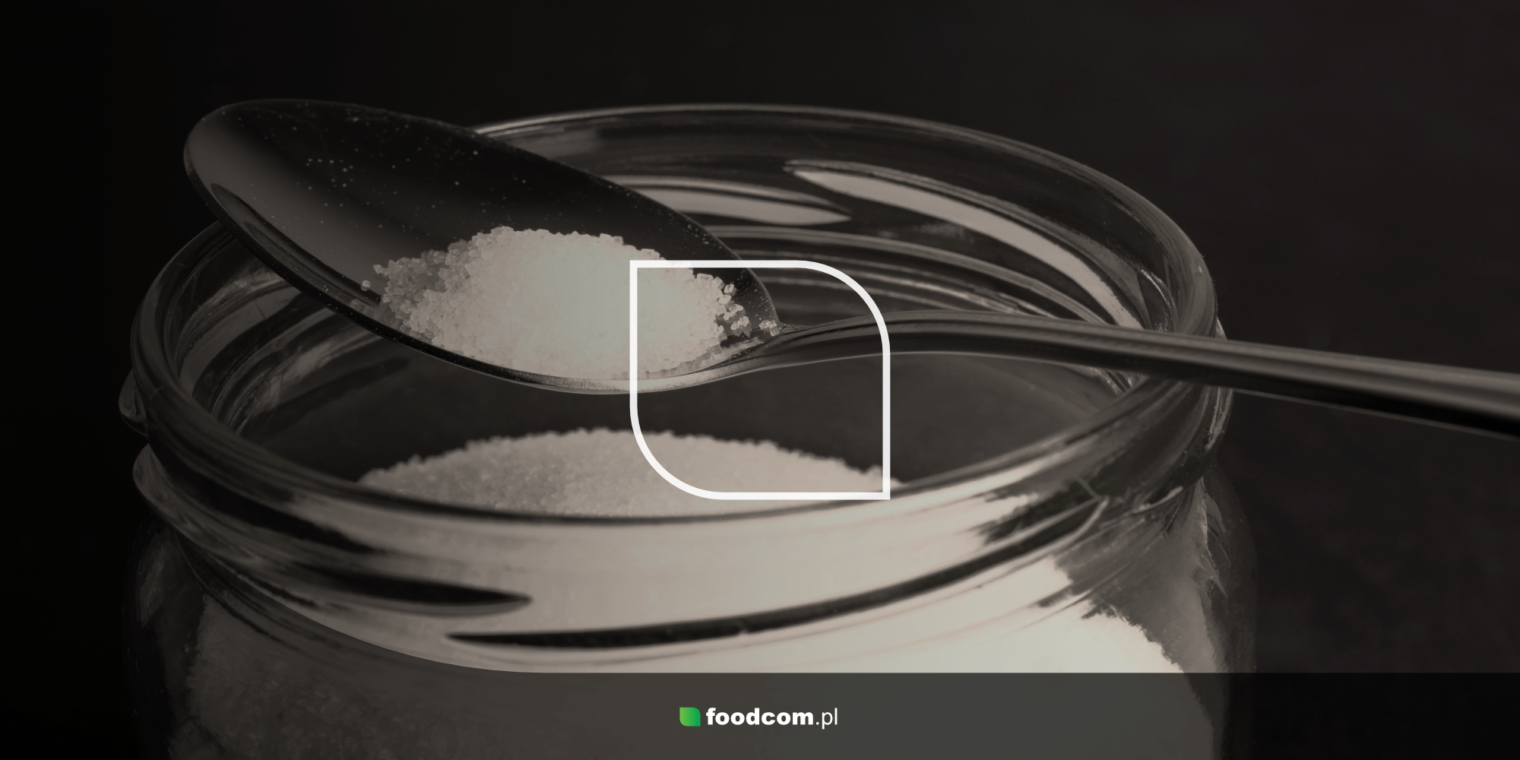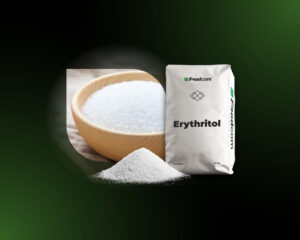- Erythritol is a polyol that occurs naturally in certain fruits and fermented products.
- It is used as a sugar substitute because of its sweet taste.
- It is safe for diabetics and does not contribute to tooth decay.
- Erythritol is used in the food, pharmaceutical and cosmetic industries.
What is Erythritol?
Erythritol is a type of carbohydrate known as a polyol, also known as alcoholic sugar. However, it contains neither alcohol nor sugar, but has the chemical properties of both. Erythritol occurs naturally in some fruits and fermented products, but can also be produced industrially.
Erythritol is considered safe for diabetics because it does not increase blood sugar levels. Most of the Erythritol absorbed by the body is not digested and therefore does not cause digestive problems, unlike other polyols. Erythritol also does not contribute to tooth decay, meaning it does not affect teeth. In addition, the product is gluten-free and suitable for vegan, vegetarian, paleo and keto diets.
Erythritol is also known as erythrol. As a food additive, it has the symbol E968.
What is Erythritol made from?
Erythritol is found in small amounts in various natural sources, especially fruits and fermented products. It is found in pears, grapes, watermelons, mushrooms, wine or beer, among others. Industrially produced Erythritol is obtained by fermenting glucose or fructose with the help of yeast and other microorganisms. The raw material for the production of Erythritol is usually corn or fermented fruits, which are not suitable for direct consumption.
Erythritol – properties
Erythritol is in the form of a white crystalline powder or granules and has no foreign odor. It is 60-70% less sweet than Saccharose and has a characteristic fresh taste in the mouth with a slight acidity. When consumed directly, it has a cooling effect in the mouth. It is often blended with other high-intensity sweeteners to achieve the desired level of sweetness. Erythritol is less water soluble and less viscous than Saccharose and other sugars. It has good stability at high temperatures and in acidic environments. It also has a very low hygroscopic index.
Erythritol can be stored for 36 months. To ensure proper storage conditions, bags of Erythritol should be placed in an area free from sunlight and odors. To reduce the risk of clumping or degradation, it is recommended to store Erythritol in a place with low humidity.
Erythritol vs. Xylitol
Erythritol and Xylitol are two types of alcoholic sugars used in the food industry as sugar substitutes. Although both are safe to consume and low in calories, they differ.
Erythritol has a slightly lower energy value than Xylitol and is easier for the body to digest. Xylitol, on the other hand, has a sweeter taste. However, when it comes to using both sweeteners, they are very similar.
Erythritol – uses
Erythritol is mainly used in the food industry. It is not only used to give a sweet taste, but can also be used as a flavor enhancer, as a means of preventing changes in the taste, texture and color of the product, and to thicken products.
In addition, Erythritol is used in the pharmaceutical sector for its antioxidant, non-flammable and moisture retaining properties. It is used as an excipient in tablets, lozenges or as a carrier of active ingredients in powder and sachet products.
In the cosmetics industry, it is an ingredient in various personal care products such as anti-aging creams and serums due to its wrinkle-reducing properties. Erythritol, which does not cause tooth decay and has moisturizing properties and a soothing sweetness, is used in the manufacture of personal care products such as toothpaste, mouthwash, creams and deodorants. It can also be used as a humectant.
Erythritol in the food industry
Erythritol has a very low caloric value – much lower than other sugars, which is why it is often used in reduced-calorie and sugar-free products. Along with other sweeteners, Erythritol is added to many products to increase sweetness and balance flavor by providing a limited amount of calories. It is added to foods such as yogurts, chocolate bars, candies and jellies. It is a common ingredient in sugar-free soft drinks and beverages – it increases their sweetness but also masks the bitterness of other ingredients.
Erythritol is also used in the food industry as a filler and thickener to add volume to a product. It is also used to reduce moisture absorption in fruit bars, flour mixes and coatings. It serves as a softener in chewing gum and hard candies. Since Erythritol is heat resistant, it can be used as an additive in baked goods and confectionery. It not only gives them a sweet taste, but also improves the softness of the texture.
Why Foodcom?
Our great team of Sales Support will help our Traders conduct the contract and business deals in a smooth and efficient way to ensure the best quality service to all our Business Partners. Our logistics team will take care of transportation and the financial department will be responsible for all matters connected with the financial part of the deal. Do not hesitate! Contact us.






![Storm on the plant-based market – latest disruptions and outlook [74th Edition of the PLANT-BASED Newsletter] Storm on the plant-based market – latest disruptions and outlook [74th Edition of the PLANT-BASED Newsletter]](https://foodcom.pl/wp-content/uploads/2023/08/Foodcom_SA_Newsletter_Plant-Based-600x300.jpg)


